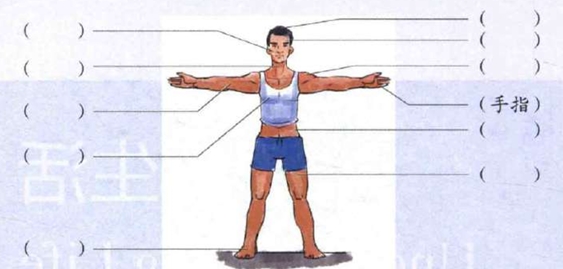练习 Exercises
-
分角色朗读课文 Role-play the dialogs.
-
根据课文内容回答问题 Answer the questions based on the dialogs.
-
大卫在哪儿学习呢?Dàwèi zài nǎr xuéxí ne?
-
九点多了,大卫为什么还不休息?
Jiǔ diǎn duō le, Dàwèi wèi shénme hái bù xiūxi?
-
坐公共汽车一个小时能到公司吗?
Zuò gōnggòng qìchē yí gè xiǎoshí néng dào gōngsī ma?
-
公司离家很远,她为什么不开车?
Gōngsī lí jiā hěn yuǎn, tā wèi shénme bù kāi chē?
-
今天不是她的生日,为什么她朋友要今天给她过生日?
Jīntiān bù shì tā de shēngrì, wèi shénme tā péngyou yào jīntiān gěi tā guò shēngrì?
-
-
用本课新学的语言点和词语描述图片
Describe the pictures using the newly – learned language points and words.

Liǎng diǎn duō le, tā hái 两 点 多 了,她 还 。

Xià kè le, tóngxuémen hái zài 下课了,同学们 还在 。

Lí hái yǒu yí gè duō xīngqī ne. 离 还有一个多星期呢。

Wǒ jiā xuéxiào bù tài yuǎn. 我家 学校不太远。
语音 Pronunciation
汉语的基本句调 Basic Intonations of Chinese Sentences 07-5
汉语的基本句调有两种:升调和降调。一般来说,疑问句读升调,陈述句读降调。例如:
There are two kinds of basic intonations in Chinese—the rising and the falling. Generally speaking, interrogative sentences have a rising intonation and declarative sentences have a falling intonation. For example:
Tā xìng Zhāng?
(1)他 姓 张?
Tā xìng Zhāng.
(2)他 姓 张。
Tā bù xǐhuan hē píjiǔ?
(3)他 不 喜欢 喝啤酒?
Tā bù xǐhuan hē píjiǔ.
(4)他 不 喜欢 喝啤酒。
汉字 Characters
汉字偏旁 “彳” 和 “攵” Chinese Radicals: “彳” and “攵”
| 偏旁 Radical | 解释 Explanation | 例字 Example Characters |
|---|---|---|
| 彳 | 双人旁,大多与行走有关系。 The radical “彳”, called the “double-person” radical, is usually related to the act of walking. |
行 xíng to walk 往 wǎng to go |
| 攵 | 反文旁,大多与鞭打、敲打有关系。 The radical “攵” is usually related to the act of whipping or beating. |
放 fàng to let go, to set free 收 shōu to receive, to accept |
运用 Application
1 双人活动 Pair Work
两人一组,说说你经常去的一些地方,你是怎么去这些地方的。
Work in pairs. Talk about the places where you often go and how you go there.
例如:机场 离我家 非常 远,我 坐 出租车 去 机场。
Jīchǎng lí wǒ jiā fēicháng yuǎn, wǒ zuò chūzūchē qù jīchǎng.
- xuéxiào 学校
- fànguǎn 饭馆
- shāngdiàn 商店
- yīyuàn 医院
- gōngsī 公司
- jīchǎng 机场
- fēijī 飞机
- zìxíngchē 自行车
- chūzūchē 出租车
- gōnggòng qìchē 公共 汽车
- zǒu lù 走路
2 小组活动 Group Work
3 – 4人一组,互相询问各自的生日及过生日的方式,每组请一位同学报告情况。
Work in groups of 3 – 4. Ask about each other’s birthdays and how to celebrate birthdays.
Each group chooses a member to make a report.
| 生日的时间 Date |
如何过生日 How to celebrate birthday |
|
|---|---|---|
| 1 | 我的生日是2月22号。 Wǒ de shēngrì shì èr yuè èrshí’èr hào. |
生日的时候,我常和朋友去吃饭。 Shēngrì de shíhou, wǒ cháng hé péngyou qù chī fàn. |
| 2 | ||
| 3 |













暂无评论内容